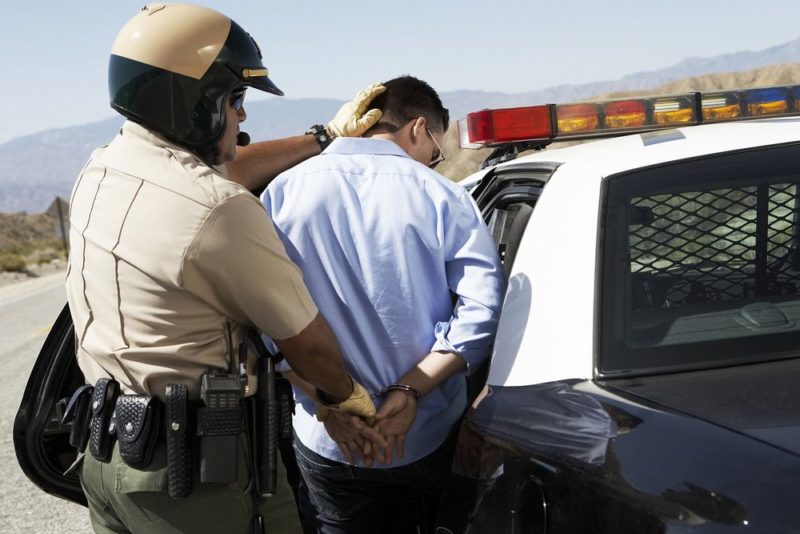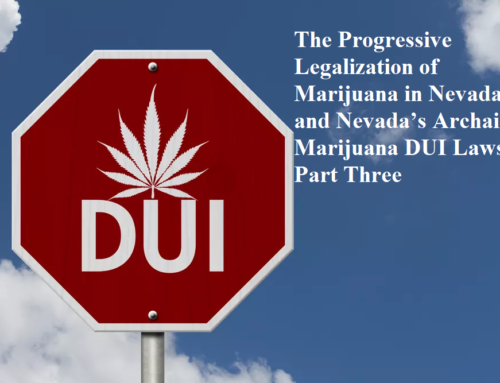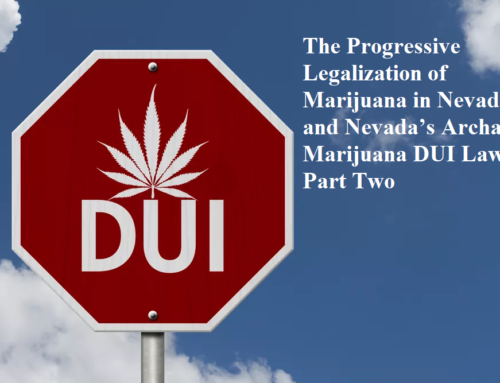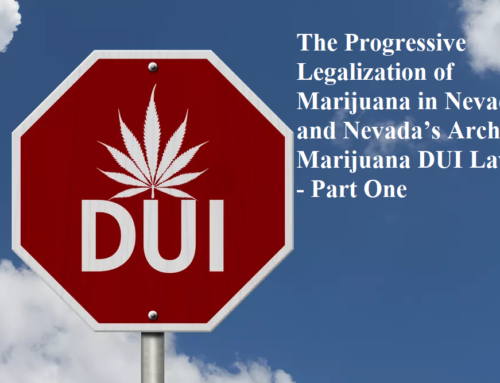Miranda Rights with Relation to DUI Charges
When I first meet with prospective DUI-clients, the most common concerns the clients initially convey pertain to Miranda.
“I was never read my Miranda rights; the case has to be thrown out, right?”
“If the officer never read me my Miranda rights the Prosecutor cannot introduce my BAC, right?”
“My arrest was illegal because the officer never read me my Miranda rights.”
Unfortunately, Miranda is not as relevant with DUI cases as you would think. In fact, a strong argument can be made that United States courts have carved out exceptions to the application of your constitutional rights when it comes to DUI cases. Yes, I am saying that your Fourth Amendment right to be free from unreasonable searches and seizures, Fifth Amendment right against self-incrimination, Sixth Amendment right of confrontation and Sixth Amendment right to a trial by impartial jury virtually evaporate when it comes to DUI cases. The focus of this article is your Fifth Amendment right against self-incrimination, otherwise known as your Miranda rights.
Miranda Explained
Before I offer an explanation, a brief history on “Miranda” may be useful. Your Miranda rights emanate from your Fifth Amendment privilege against self-incrimination. The word “Miranda” comes from a 1966 United States Supreme Court case called Miranda v. Arizona. Miranda v. Arizona is the seminal US case concerning custodial police interrogation and Fifth Amendment protections. In Miranda v. Arizona, the United States Supreme Court held that “the prosecution may not use statements . . . stemming from custodial interrogation of the defendant unless it demonstrates the use of procedural safeguards effective to secure the privilege against self-incrimination.” Although the US Supreme Court held that “other fully effective means” could be used, the “procedural safeguard” announced in Miranda v. Arizona was as follows:
Prior to any questioning, the person must be warned that he has a right to remain silent, that any statement he does make may be used as evidence against him, and that he has a right to the presence of an attorney, either retained or appointed.
Generally speaking, if law enforcement officers fail to “Mirandize” a suspect in violation of Miranda v. Arizona, all statements made by the suspect must be excluded from trial.
Turning back to my statement that existing caselaw renders Miranda somewhat irrelevant in DUI cases . . .
Remember…the rule from Miranda v. Arizona is “the prosecution may not use statements . . . stemming from custodial interrogation of the defendant unless it demonstrates the use of procedural safeguards effective to secure the privilege against self-incrimination.” There are three reasons why Miranda is not so relevant with DUI cases: (1) most if not all of the “evidence” law enforcement collects during DUI investigations is not protected by Miranda; (2) by the time a DUI suspect is in “custody” (and therefore subject to “custodial interrogation” and Miranda’s protections), law enforcement has already completed its investigation and arrested the suspect; and (3) existing case law allows law enforcement to perform nearly an entire DUI investigation before Miranda triggers. The foregoing is explained in greater detail below.
Only “Statements” are Protected by Miranda
Again, the rule from Miranda v. Arizona is “the prosecution may not use statements . . . stemming from custodial interrogation of the defendant unless it demonstrates the use of procedural safeguards effective to secure the privilege against self-incrimination.” Most of the evidence in DUI prosecutions, and in many cases all of it, is not protected by Miranda at all. Evidence such as testimony or video concerning driving maneuvers, testimony or video of a suspect’s physical and cognitive state (balance issues, odor of alcohol/THC, bloodshot/watery/glassy eyes, fixed/focused stares, slurred speech, disorientation) performance on field sobriety tests and, most significantly, forensic analysis of biological samples (blood or breath tests) are not protected by Miranda. Miranda only applies to your statements or “testimonial communications” (i.e., “Yes officer, I am too drunk to drive” or “I had nine shots of tequila”). Yes, this means the government can prosecute you for DUI and convict you without the use of any evidence that would otherwise be protected by the Fifth Amendment and Miranda. Even worse, as explained in greater detail below, existing caselaw permits law enforcement to engage in “reasonable questioning” with a suspect upon making a traffic stop. This means questions such as “Where are you coming from?” or “Have you been drinking?” or “How much have you had to drink?” are arguably permissible at the inception of your traffic stop. Thus, the “statement” factor of Miranda can substantially limit Fifth Amendment protections in DUI cases.
“Custodial Interrogation”
Once again . . . the rule from Miranda v. Arizona is “the prosecution may not use statements . . . stemming from custodial interrogation of the defendant unless it demonstrates the use of procedural safeguards effective to secure the privilege against self-incrimination.” This means that any and all statements made by suspects when they are not “in custody” are not protected by Miranda. For Miranda purposes, being in “custody” means a formal arrest or restraint on freedom of movement of a degree associated with a formal arrest. Obviously, a person under formal arrest is considered “in custody.” However, if the suspect has not formally been arrested, the pertinent inquiry turns on whether a reasonable person in the suspect’s position would feel “at liberty to terminate the interrogation and leave.” The factors a court will examine in determining the “reasonable person” test, include: (1) the site of the interrogation; (2) whether the investigation is focused on the suspect; (3) whether objective indicia of arrest are present; and (4) the length and form of questioning. Additionally, for Miranda purposes, “interrogation” refers not only to express questioning, “but also to any words or actions on the part of the police (other than those normally attendant to arrest and custody) that the police should know are reasonably likely to illicit an incriminating response from the suspect.” “A practice that the police should know is reasonably likely to evoke an incriminating response from a suspect thus amounts to interrogation.”
So . . . even when we are dealing with statements, not all statements are protected by Miranda, only statements made during “custodial interrogation.” As explained more thoroughly below, “persons temporarily detained pursuant to” routine traffic stops “are not ‘in custody’ for the purposes of Miranda.” Again, the ultimate inquiry turns on whether a reasonable person in the suspect’s position would feel “at liberty to terminate the interrogation and leave.” Existing caselaw permits law enforcement to perform nearly an entire DUI investigation before the suspect will be placed in formal custody. Thus, the “custodial interrogation” factor of Miranda can substantially limit Fifth Amendment protections in DUI cases.
DUI Investigations
Most DUI arrests begin as simple traffic stops. Whereas formal arrests require the “probable cause” that an offense has been committed, traffic stops require the less stringent standard of “reasonable suspicion.” Although traffic stops do constitute “seizures” under Fourth Amendment analysis, traffic stops are deemed less intrusive than formal arrests. In fact, persons temporarily detained pursuant to routine traffic stops are not “in custody” for purposes of Miranda. A person stopped pursuant to a routine traffic stop is only entitled to Miranda warnings upon his arrest or “as soon as his freedom of action is curtailed to a degree associated with formal arrest.” In other words, although persons seized pursuant to traffic stops can ultimately be entitled to receive Miranda warnings, they are not entitled to receive such warnings at the time of the stop and, with some traffic stops, the right to receive Miranda warnings never trigger.
The United States Supreme Court has held that where a motor vehicle has been lawfully detained/stopped for a traffic violation, law enforcement may order the driver to get out of the vehicle without violating the Fourth Amendment. Even more significant, both the United States and Nevada Supreme Courts have held that Miranda warnings are not necessary before “reasonable questioning and administration of field sobriety tests at a normal roadside traffic stop.” Thus . . . so long as law enforcement can articulate a “reasonable suspicion” that you committed a crime (i.e., a simple traffic infraction), they are free to stop (“seize”) you and “investigate possible criminal behavior even though there is no probable cause to make an arrest.” Although their questioning must be “justified at its inception, and . . . reasonably related in scope to the circumstances which justified the interference in the first place,” the scope of the questioning can broaden if the officer detects “reasonable suspicion” for separate crimes. For instance, the scope of a traffic infraction investigation will broaden to a DUI investigation if certain “tell-tale” DUI signs are present (i.e., slurred speech, odor of alcohol, bloodshot eyes, etc.). This is where “reasonable questioning” would include questions such as “Where are you coming from?” or “Have you been drinking?” or “How much have you had to drink?”
So . . . under existing caselaw, law enforcement can pull you over (“seize” you) provided they have “reasonable suspicion” that you committed a traffic infraction (which may or may not include a suspicion of DUI), order you out of your vehicle, ask you “reasonable” questions pertaining to DUI and subject you to a full battery of field sobriety tests without the obligation to Mirandize you triggering. Thus, the broad flexibility existing caselaw affords law enforcement with DUI investigations can substantially limit Fifth Amendment protections in DUI cases.
Concluding Remarks
Although Miranda rights unequivocally apply to DUI traffic stop investigations, the point in time when Miranda triggers with DUI stops is somewhat unclear. Obviously, law enforcement is required to Mirandize a suspect upon placing the suspect in handcuffs/formal arrest. Law enforcement is also required to Mirandize a suspect where there has been no formal arrest but a “reasonable person” would not feel free to leave. There is no doubt that a DUI suspect is entitled to be read his or her Miranda rights, “at the very least, as of the moment he was formally placed under arrest and instructed to get into the police car.” The ultimate determination will turn on a case by case analysis. More importantly, isolating the moment in time when Miranda triggers is only one relevant inquiry. The next and more important inquiry turns on whether any incriminating statements were made. Finally, in most DUI cases, by the time incriminating statements are made, the government will typically have more than enough evidence to prosecute even without the incriminating statement(s).
It is important to know the actual DUI laws in your state if you are facing these serious charges. DUI penalties can be severe and stay with a person for a lifetime if not taken seriously. Nevada DUI laws are unique in many ways. If you have been arrested for a DUI in Nevada you should contact our DUI lawyer today to help fight for your rights.






